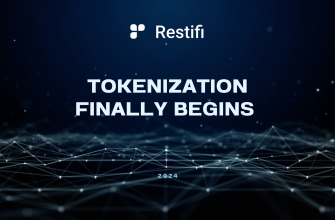The advent of blockchain technology has brought about a paradigm shift in financial markets. Tokenization platforms, a product of this revolutionary technology, are transforming the way assets are created, managed, and traded. This article seeks to contrast traditional financial markets with tokenization platforms, and unravel the future that awaits finance in the era of tokenization.
- Traditional Financial Markets: A Primer
- Tokenization Platforms: The New Paradigm
- IPOs vs. Token Launches: A Comparative Study
- Private Equity in the Lens of Tokenization
- The Evolution from Stock Exchanges to Token Exchanges
- Navigating Regulations: From Traditional Markets to Tokenization Platforms
- Risk Management: Traditional Finance vs. Tokenization Platforms
- Forecasting the Future of Tokenization Platforms
- Conclusion
- FAQs
Traditional Financial Markets: A Primer
Traditional financial markets are a complex network of institutions that facilitate the exchange of various financial instruments. These markets encompass the realm of stocks, bonds, commodities, currencies, and other tradable assets. Key players in this realm include banks, stock exchanges, brokers, and regulatory bodies, each performing a distinctive role.
Initial Public Offerings (IPOs) are a significant part of these markets, paving the way for companies to raise capital from the public. Investment banks, serving as intermediaries, undertake underwriting services, determining the initial offer price, buying the securities from the company, and selling them to investors.
Tokenization Platforms: The New Paradigm
In contrast, tokenization platforms leverage blockchain technology to digitize assets, converting them into tokens that can be traded on a blockchain network. This process, known as tokenization, allows assets to be divided into fractional shares, making them more accessible to a wide range of investors.
Tokenization platforms also facilitate the launch of tokens, which parallels the process of IPOs in traditional markets. However, unlike IPOs, token launches or Initial Coin Offerings (ICOs) often bypass intermediaries like investment banks. Instead, companies can directly sell their tokens to investors, significantly reducing costs and improving efficiency.
IPOs vs. Token Launches: A Comparative Study
While IPOs and token launches share the common goal of raising capital, they differ significantly in their processes and implications. IPOs, governed by stringent regulatory frameworks, involve a series of steps, including due diligence, underwriting, and roadshows, before the shares are finally listed on a stock exchange.
In contrast, token launches on tokenization platforms are more straightforward, often bypassing intermediaries and reducing costs. However, this lack of regulation can also lead to increased risk for investors, making due diligence all the more crucial.
Private Equity in the Lens of Tokenization
Private equity, a significant component of traditional financial markets, involves direct investment in private companies or buyouts of public companies. This sector, dominated by institutional investors, is known for its high entry barriers and lack of liquidity.
Contrarily, tokenization platforms enable fractional ownership of assets, opening the doors to sectors like private equity for retail investors. Moreover, the inherent liquidity of tokens can potentially transform this traditionally illiquid market, creating a more dynamic and inclusive financial ecosystem.
The Evolution from Stock Exchanges to Token Exchanges
Stock exchanges play a pivotal role in traditional financial systems, facilitating the trading of stocks, bonds, and other financial instruments. These centralized platforms ensure compliance, maintain liquidity, and provide a transparent trading environment.
Token exchanges on tokenization platforms serve a similar purpose, enabling the trading of digital tokens. However, they operate on a decentralized framework, eliminating the need for intermediaries, and providing global access to a wide array of digital assets.
Navigating Regulations: From Traditional Markets to Tokenization Platforms
Regulatory structures governing traditional financial markets are well-established, ensuring investor protection, market integrity, and financial stability. These regulations govern every aspect of financial transactions, from disclosure norms to investor qualifications.
In contrast, tokenization platforms are still navigating the regulatory waters. While some countries have embraced tokenization with open regulatory frameworks, others tread cautiously, given the associated risks and the novel nature of this technology. As tokenization gains momentum, the need for robust regulatory frameworks that balance innovation with risk management becomes increasingly pertinent.
Risk Management: Traditional Finance vs. Tokenization Platforms
Risk management is a crucial aspect of any financial system. In traditional markets, this involves a combination of statutory regulations, internal risk assessment procedures, and market-driven risk management strategies.
In the realm of tokenization platforms, risk management takes on a new dimension. While blockchain technology offers enhanced security and transparency, it also poses unique risks, including technological vulnerabilities and regulatory uncertainty. Therefore, robust risk management strategies, coupled with proactive regulatory measures, are essential to mitigate these risks.
Forecasting the Future of Tokenization Platforms
As tokenization continues to gain traction, its potential to redefine financial markets is immense. Not only can tokenization streamline operations and reduce costs, but it can also democratize access to assets, thereby fostering financial inclusion.
Moreover, the transparency and traceability offered by blockchain technology can enhance investor confidence and market integrity. As such, tokenization platforms could potentially emerge as a viable alternative or complementary system to traditional financial markets.
Conclusion
The advent of tokenization platforms marks a seismic shift in the financial landscape. By democratizing asset ownership, enhancing transparency, and streamlining operations, tokenization holds the potential to revolutionize financial markets.
However, this transformation is not without challenges. Regulatory uncertainties, technological risks, and the need for investor education present significant hurdles. Nevertheless, as the financial sector continues to evolve and innovate, tokenization platforms are poised to play a critical role in shaping the future of finance.
FAQs
- What is tokenization, and how does it work in the context of digital assets?Tokenization involves converting tangible or intangible assets into digital tokens using blockchain technology. These tokens represent ownership or rights to the underlying asset.
- How is tokenization changing the real estate market, and what are the benefits for investors?Tokenization allows for fractional ownership, making it more accessible to investors. It also increases liquidity and transparency in the market, enabling investors to diversify their portfolios and invest in high-value properties.
- What are some regulatory challenges associated with tokenization, and how can they be addressed?Regulatory challenges include security, compliance, and legal uncertainties. To address these issues, businesses and regulators need to collaborate in developing clear and adaptable regulatory frameworks to balance innovation and investor protection.
- How are Non-Fungible Tokens (NFTs) transforming the art and collectibles market?NFTs have brought digital art into the spotlight, enabling artists to tokenize their work. They provide a new way to verify ownership and provenance while offering opportunities for artists to reach a global audience directly.
- What is the future potential of tokenization, and where might we see its application beyond current use cases?The future potential of tokenization is immense, with anticipated growth in the tokenization market. It’s expected to expand into areas like intellectual property rights, supply chain management, and beyond, thanks to the versatility of blockchain technology and the power of digital tokens.









